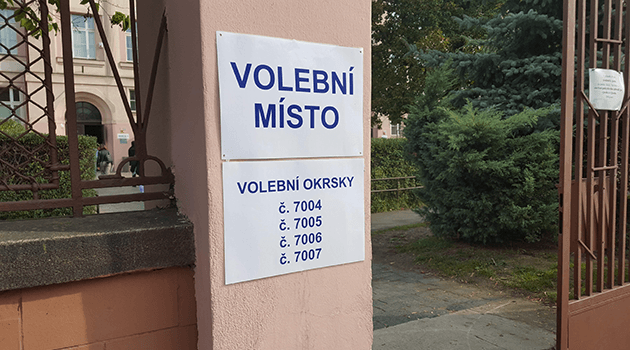Czech court rules no mass vote-buying in local elections in Bílina this time, results stand

The Ústecký Regional Court in the Czech Republic has ruled that the recent elections held in Bílina (Teplice district) were valid, its second rejection of a motion for the election to be cancelled and re-held on suspicion of vote-buying and other discrepancies. The court’s decision has taken effect.
Pavel Musil of the Nezávislí v Bílině – HNHRM (Independents in Bílina – HNHRM) association filed the lawsuit over the October 2018 local elections. The court has assessed his motion to declare the election invalid as unfounded on all counts.
“We especially focused on the issue of vote-buying in Bílina, and despite the massive submission of evidence through numerous witness interrogations, we did not arrive at the conclusion that any unacceptable vote-buying took place on such a scale as to obscure the election outcome,” Judge Markéta Lehká said. Many of the witnesses, according to the court, seemed unreliable – some had to be repeatedly summoned, others were brought to court to testify by police.
“The witnesses contradicted each other, including in the statements given to the court and the police,” the judge said. The court commissioned 11 video recordings of testimonies on the basis of Musil’s motion.
Those giving statements said they had been given either CZK 300 or CZK 400 (EUR 12 – 16) to cast their ballots for a specific party. Some of the witnesses said they did not cast a ballot exactly because the bribes were being offered.
During the most recent hearing, several witnesses confirmed the vote-buying while others rejected the allegations. During the first hearing of the case one year ago the court refused to review some of Musil’s proposed evidence, explaining that the proposal had been submitted after the deadline for reporting election fraud had expired and that it was too close to the time when the court was meant to make its decision.
Isolated cases
Musil argued against that interpretation of the law in a constitutional complaint. He pointed out that in the summons to the oral hearing, the Regional Court had instructed him that evidence could be submitted at any point until the hearings were closed.
The Constitutional Court agreed with Musil that the Regional Court had violated his right to judicial protection when it it did not take his proposed evidence into account. The court had been able to review the evidence as the documents were available to it.
On 3 October the Regional Court judge said that despite the massive submission of evidence, Musil had not managed to prove that the law had been broken by vote-buying. The court found that some witnesses had not cast ballots at all, while others were not even residents of Bílina.
The court assessed the critique of the elections as unfounded because the vote had been properly realized. Isolated cases of vote-buying, according to the court, did not justify cancelling the results because the will of the voters had not been disrupted in any massive way.
“The electoral courts should take an activist approach only in cases where the lawbreaking is flagrant,” the judge emphasized. There is no way to appeal the judgment.
The 2018 local elections in Bílina were won by the ANO movement (Association of Dissatisfied Citizens), who have nine seats in the 29-member local assembly. The Independents came in fourth place with three seats.
Disputes around elections in Bílina had to be addressed by the courts in 2014. On that occasion the court ordered the elections to be repeated exactly because vote-buying had occurred.